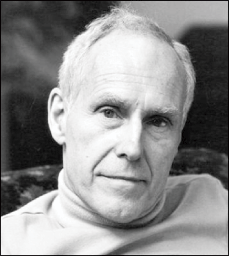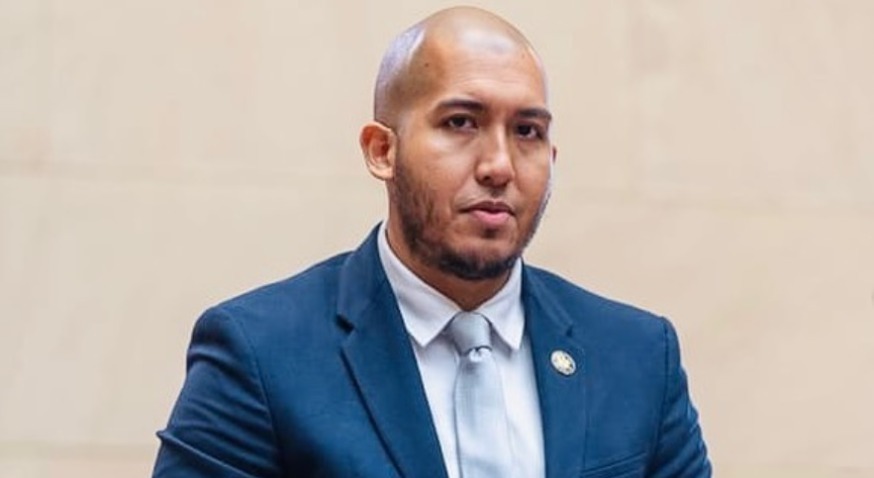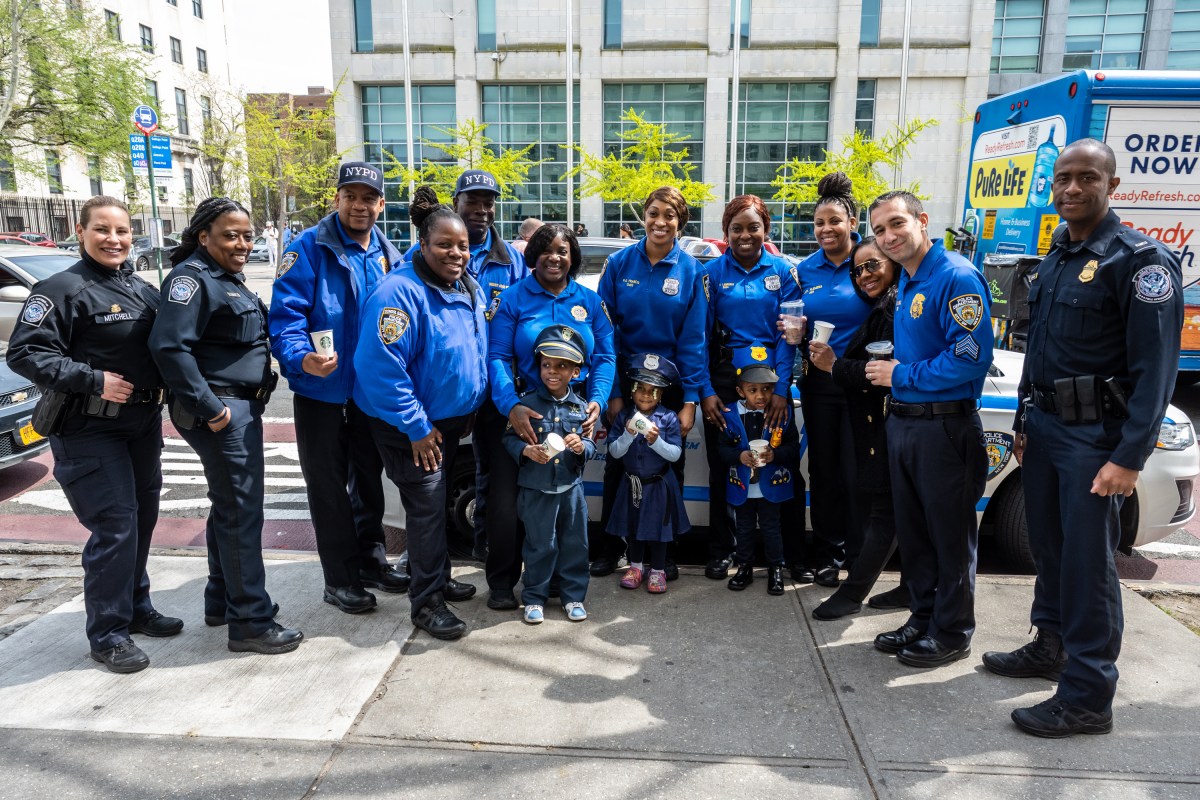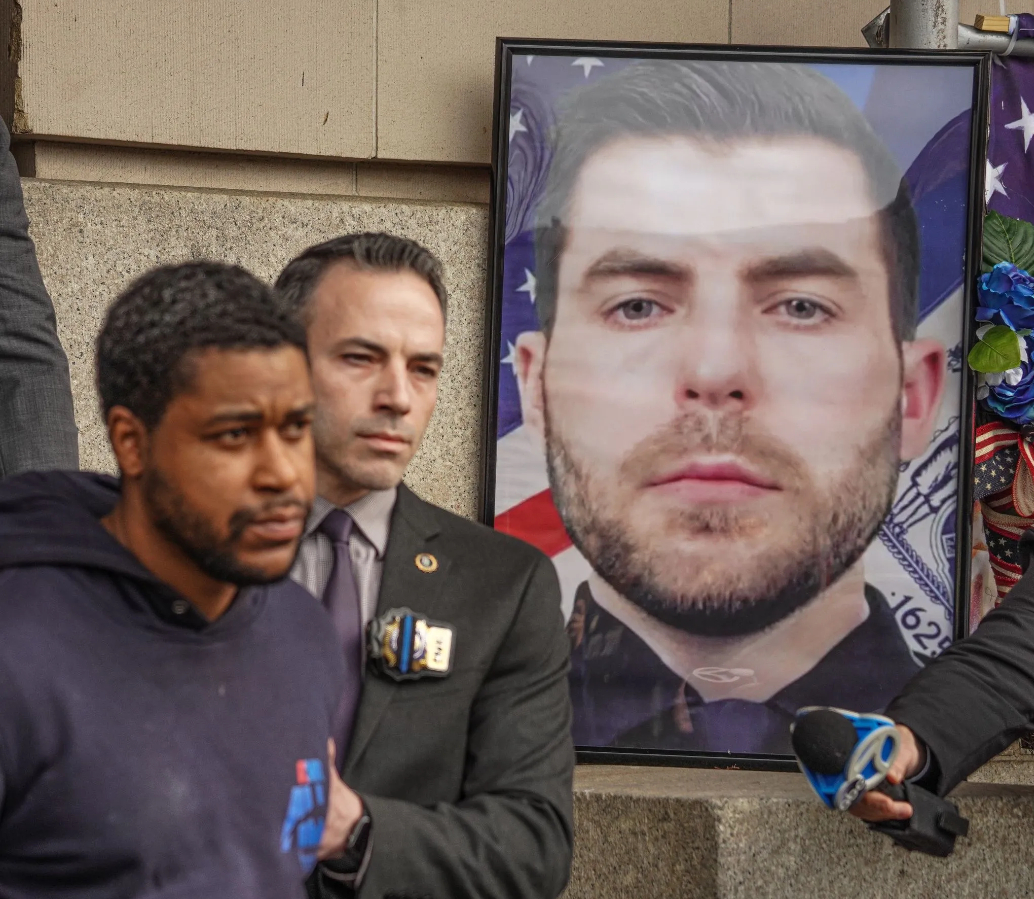 [/media-credit]
[/media-credit]
“Waiting for Godot”
When Barney Rosset, who left us last week, makes it to the top of those stairs, he’s going to beg Gabe to bring around Tom Paine, the ultra-radical immortal pamphleteer of the American Revolution, a Communist before there was communism.
“I want to ask him how could I have missed reissuing his writings,” Barney is going to tell the Angel Gabriel. “Probably because Tom Paine didn’t write plays, just alarums. ‘The summer soldier and the sunshine patriot will, in this crisis, shrink from the performance of their duty, but he that stands it now…’”
Barney Rosset, the gutsiest book publisher of my lifetime, brought out more than the texts of new and vital plays, of course. He fought up to the U.S. Supreme Court, and won — at great personal risk andw expense — the right to publish in this country a novel called “Lady Chatterley’s Lover,” by Britain’s D.H. Lawrence, and the sexually ultra-candid novels of our own country’s Henry Miller. The list of many other Grove Press authors — intellectual and/or political rebels — would include Allen Ginsberg, Jack Kerouac, William S. Burroughs, Norman Mailer, Hubert Selby, Jr., Julian Beck and Seymour Krim.
But the core of the Grove Press output — the handsome little paperbacks that constituted my own home library through the 1950s, ’60s and ’70s — were the texts of plays by such people, known or not yet then known, as Jean Genet, Eugene Ionesco, Vaclav Havel, Joe Orton, Tennessee Williams, Edward Albee, Nobel Prize winner-to-be Harold Pinter… .
And oh yes, another Nobel Prize winner-to-be. Goes by the name Samuel Beckett.
Barney enjoyed telling the story — to me and many others — how one day in the 1950s he came across a one-inch, bottom-of-the-page filler in The New York Times about a new play called “Waiting for Godot” opening at a tiny theater in Paris, France. And how Barney hunted up Beckett’s New York agent and bought from her — for I think $100 — the U.S. publishing rights to that remarkable drama. And then went to Paris to meet the playwright. And became lifelong friends with Beckett until Beckett’s death in 1989.
And how, in 1959, Samuel Beckett came to the United States for the first and only time to sit in on the shooting — mostly under the Manhattan end of the Brooklyn Bridge — of a film called “Film,” screenplay by Beckett, direction by Alan Schneider, starring the immortal Buster Keaton, co-starring the James Karen and Susan Reed who not long before had together run an antiques shop on Greenwich Avenue.
“Beckett stayed here two weeks and then lit out for Paris as soon as he could,” Rosset would say with laughter.
Only 400 Grove Press copies of “Waiting for Godot” were sold throughout the world in its first year of publication. The total since then is more than 2 million copies. And the people who helped Barney to make Grove Press do what it did — helped mightily — were editors Don Allen, Fred Jordan and Dick Seaver.
The stairs, the stairs.
In what his wife, Astrid, puts at the past 22 years, she and Barney lived three long flights up (no elevator) in a book-packed, floor-through loft hard by Cooper Square, from which he went forth early on the morning of Tuesday, February 21, 2012 — three months short of his 90th birthday — for a double heart valve replacement far uptown at Columbia Presbyterian Medical Center.
“A risk to take, but a greater risk not to take,” said Astrid.
Everything was going along well, and then it wasn’t. At 9 p.m. came the phone call… .
Barney Rosset and Astrid Meyers were together for 24 years, married (his fifth wife) for five years. They met in East Hampton, where she was teaching school. She’d done everything over all those years to make his life and work possible. Keeping alive his Evergreen Review magazine into this cybernetic age. Organizing and reorganizing and reorganizing his life story, including memories of and correspondence with Samuel Beckett.
(Full exposure: Some of this writer’s pieces appeared in a number of pre-cybernetic issues of Evergreen Review.)
Barnet Lee Rosset was born in Chicago, Illinois, on May 28, 1922. His father, Barnet Senior, was an up-and-coming young Jewish banker; his mother, Mary Elisabeth Tansey, was the Irish-American and Roman Catholic daughter of a construction worker on the rise. Barney always believed his mother was inherently anti-Semitic.
The history of the Irish branch of ancestors was full of violence. Barney at least once went to Ireland to take in the scene with his own eyes. The name of his computerized publishing house is Foxcroft — Samuel Beckett’s birthplace. Perhaps one can close one’s eyes and see those two noble Irishmen, Sam Beckett and Barney Rosset, out on the town of a bibulous Paris evening.
His parents put Barney into the progressive Frances Parker School, where he rose to class president and, for all his diminutive size, tailback on the football team. The co-captain was Haskel Wexler — a buddy who, however, stole and married the girl Barney was in love with. (Wexler grew up to be the heralded cinemaphotographer of “Who’s Afraid of Virginia Woolf?” and many another motion picture.)
“It was a great school,” Barney said a few years ago, “but I did not like the principal. He wrote a recommendation for me to the University of Chicago, and put it in a sealed envelope. When I got home, I took it out and read it. It said: ‘Mr. Rosset has none of the characteristics of his race.’”
Had he received no religious indoctrination of any kind?
“None. So I became a Communist. As a religion. And you better believe it.”
It was a teacher named Sarah Greenbaum who radicalized Barney for life. When he was 12 years old, he traveled to Vassar College — along with such young rebels as James A. Wechsler and Joseph Lash — to attend a meeting of the left-wing American Student Union. It earned him a citation from the ever-watchful F.B.I., also for life, and a tag which Barney was going to use as the title — “Subject is left-handed” — if he ever got around to completing his autobiography for Algonquin Press.
That task is now being entrusted to Brad Morrow.
The radicalism was signed and sealed under General Ginger Joe Stillwell on the China-Burma-India front during World War II. Barney came back from that experience, straight to Greenwich Village. He lived all over the Village before moving to that floor-through by Cooper Square.
There will be no immediate memorial, said Astrid Meyers Rosset. Perhaps something around the time of Barney’s 90th birthday, in May.
Barney Rosset was not always the easiest person in the world. He could be demanding and cranky and could switch back and forth in what he wanted from one minute to the next. His cackle of a laugh could drive you up the wall.
For all that, he was a great creative warrior for intelligence and — how else to put it? — our written/spoken culture. In short, an American to make you proud to have known him. A Tom Paine of the human brain.

















